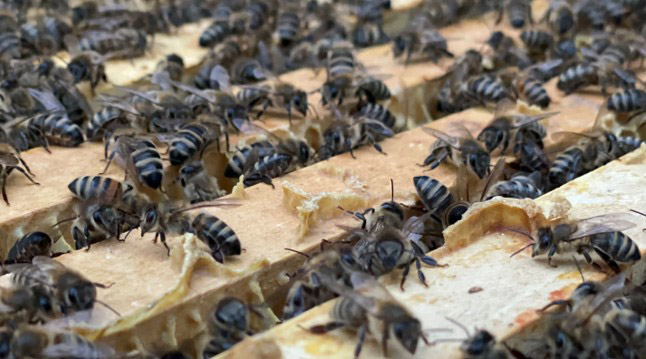J.D. Neuhaus installs 2 bee colonies as part of its growing sustainability efforts
15 July 2021J.D. Neuhaus, manufacturer of pneumatic lifting equipment, is shining a light on its sustainability efforts by installing two bee colonies at its site in Witten, Germany, where it employs up to 20,000 employees.
“We want to make the topic of sustainability approachable for our employees and society in general on our company premises. And since bees are an essential part of our ecosystem, it makes us proud to offer a home to the colonies on our premises,” said Wilfried Neuhaus-Galladé, MD, J.D.Neuhaus.
According to Armin Decker, operations manager and global change leader at the company said it already tries to avoid any kind of waste through its production system.
The backbone of the entire production chain on its 27,000 m² plant site in Witten-Heven is the “JDN Production System”, which is based on the Toyota Production System. Methods and principles such as Lean Management, Just in Time or the Pull Principle which is its foundation for producing high-quality hoists. For example, the pull principle creates conditions for starting production of a hoist only when the customer actually orders it.
“In general, the following applies in all our entrepreneurial activities: Never lose sight of aspects of sustainability. When we talk about sustainability in the group, we are talking about avoiding waste. Waste not only causes unnecessary costs, it is also harmful to the environment and brings no benefit to the user,” added Neuhaus-Galladé.
The measures implemented in recent years have also had a positive impact on its order throughput times. As an example, a complex hoist like the PROFI series in the medium load capacity segment: “Whereas 10 years ago it took several weeks on average to deliver this hoist, today the order throughput time for such a hoist is only a few days. This aspect not only influences our sustainability aspects, it also leads to customer benefits in the end.”
Its supplier system is designed “around the steeple.” Neuhaus-Galladé added it avoids direct suppliers from Asia or other distant countries, to avoid unnecessary CO-2 emissions for transporting materials and raw materials needed to produce its pneumatic hoists.
Electricity, water and crude oil
In addition, the careful use of resources such as electricity and water also enjoys high priority. “In this respect, too, we strive to use as little waste as possible. From April 2021, we will be purchasing only green electricity from our local energy provider, Stadtwerke Witten. This will reduce our KG value of CO-2 emissions from 790,000 to 0. Three of five production halls on the factory premises have already been equipped with LED lighting technology, and the next two production halls will soon receive this technology,” said Neuhaus-Galladé.
“Certainly, we have to keep an eye on our heating systems in the plant. These are operated with fuel oil and natural gas. Here, it will be important to find solutions in the future that are more environmentally friendly and thus more ecologically sustainable than the previous solutions. With modern waste water technology the environmental impact of our company is kept as low as possible.”
Maintenance of the JDN green areas
Since 1745 the company has been located in the Windenstraße. Accordingly, there are many very old trees on the premises, home to a wide variety of bird species. “It was a matter of concern to us early on to look after every tree on our company premises. Should it ever become necessary for a tree on the premises to give way, we undertake to plant a new tree,” said Neuhaus-Galladé. “We also try to green our company grounds with native plants to provide food for many different species of insects. Whereas in previous years we used large machines to mow our lawns, we now maintain our lawns ourselves with modern robotic mowers, which in turn are charged with the green electricity and we have now installes two bee colonies onsite.
“One thing is certain: our goal of passing on a healthy earth to future generations can only be achieved if everyone does their part. Similar to a bee tribe.”